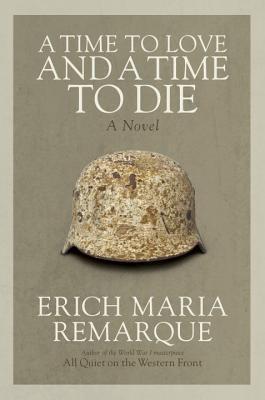What do you think?
Rate this book


432 pages, Paperback
First published September 1, 1954
— Mâncarea se distribuie în baraca numărul trei, glăsui în cele din urmă jandarmul cel mai în vârstă. Și mai dați jos jegul de pe voi. Arătați ca niște porci. În halul ăsta vreți să vă faceți intrarea în patrie?
Grupul se îndreptă spre baraca numărul trei.
— Copoi împuțiți! scrâșni un soldat negricios, cu fața numai tuleie. Gură mare, dar la căldurică, departe de front! Și se dau la ni de parcă am fi tâlhari!
— La Stalingrad au împușcat zeci de inși, luând drept dezertori niște oameni care doar se pierduseră de regimentele lor, zise altul.
— Ai fost la Stalingrad?
— Dacă aș fi fost, nu mai eram acum aici. Din încercuirea de acolo n-a scăpat nimeni.
— Ascultă, băiețaș, i-o tăie un subofițer mai în vârstă. Pe front ești liber să spui ce poftești. Aici e însă altceva. Așa că, de acum încolo, ai face mai bine să-ți strunești melița, dacă ții la pielea ta, înțeles?
— Rușii nu sunt arieni! sări deodată unul șobolănos, cu fața țuguiată și cu gura mică și care până atunci tăcuse.
Toți se uitară la el.
— Ba te înșeli, ripostă chelbosul. Rușii sunt arieni. La un moment dat au fost chiar aliați cu noi.
— Sunt ființe inferioare; bolșevicii sunt de rasă inferioară. Nicidecum arieni. Așa sună dispozițiile.
— Greșești. Polonezii, cehii și francezii sunt de rasă inferioară. Pe ruși îi dezrobim de sub jugul comuniștilor. Sunt arieni puri. Cu excepția comuniștilor, bineînțeles. Poate că nu sunt arieni de rasă superioară, ca noi, dar nu-i stârpim.
„Șobolanul” rămase buimac.
— Rușii au fost totdeauna oameni de rasă inferioară, articulă el. O știu bine. Oameni de cea mai categorică rasă inferioară.
— Asta s-a schimbat de mult. Ca și cu japonezii. De când s-au aliat cu noi în război, sunt și ei arieni. Arieni de culoare galbenă.
— Vă înșelați amândoi, se amestecă unul cu voce de bas și cu corpul teribil de păros. Rușii n-au fost de rasă inferioară câtă vreme erau aliații noștri, dar acum sunt. Așa stau lucrurile.
— Noi nu suntem martiri. Iar eu vreau să știu: unde începe complicitatea? replică Graeber. Vreau să știu: când devine crimă ceea ce se cheamă altfel eroism? Atunci când nu mai credem substratul eroismului – sau în finalitatea lui? Unde e hotarul?
— Un copil? Ar crește tocmai bine pentru un viitor război, așa cum am crescut noi pentru războiul ăsta. Gândește-te numai la mizeria ce-l așteaptă după ce se va naște!